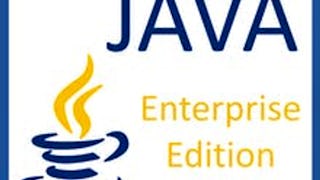Filter by
SubjectRequired
LanguageRequired
The language used throughout the course, in both instruction and assessments.
Learning ProductRequired
LevelRequired
DurationRequired
SkillsRequired
SubtitlesRequired
EducatorRequired
Results for "excel basics"

Technical University of Munich (TUM)
Skills you'll gain: Orthopedics, Splinting, Trauma Care, Surgery, Rehabilitation, Neurology, Triage, Emergency Medicine, Critical Care, Patient Treatment, Radiography, Treatment Planning, Patient Evaluation, Anatomy, Medical Imaging
 Status: Free Trial
Status: Free TrialLearnQuest
Skills you'll gain: SQL, Oracle Databases, Database Design, Database Management, Relational Databases, Data Access, Data Integrity, Performance Tuning, Data Structures
 Status: Free Trial
Status: Free TrialSalesforce
Skills you'll gain: Sales Pipelines, Sales Process, Sales Operations, Order Management, Sales Management, Sales Support, Salesforce, Request For Quotation (RFQ), Product Knowledge, Sales Training, Company, Product, and Service Knowledge, Contract Management, Collaborative Software, Kanban Principles
 Status: Free Trial
Status: Free TrialLearnQuest
Skills you'll gain: Java Platform Enterprise Edition (J2EE), Application Deployment, Web Applications, Application Servers, Java, Object-Relational Mapping, Application Development, Web Development, Web Servers, Application Frameworks, Scripting, Middleware, Server Side, Javascript and jQuery, Data Storage, Apache Tomcat, Enterprise Architecture, Data Sharing, Hypertext Markup Language (HTML), Model View Controller

University of Rochester
Skills you'll gain: Supply And Demand, Market Dynamics, Economics, Consumer Behaviour, Resource Allocation, Cost Benefit Analysis, Market Analysis, Policy Analysis, Decision Making, Budgeting
 Status: Free Trial
Status: Free TrialYonsei University
Skills you'll gain: Cash Flow Forecasting, Business Valuation, Cash Flows, Microsoft Excel, Forecasting, Finance, Financial Modeling, Financial Analysis, Estimation
 Status: Free Trial
Status: Free TrialUniversity of California, Irvine
Skills you'll gain: Supply Chain Planning, Demand Planning, Customer Demand Planning, Supply Chain Management, Capacity Planning, Materials Management, Forecasting, Performance Measurement, Microsoft Excel, Data-Driven Decision-Making, Statistical Methods, Key Performance Indicators (KPIs), Meeting Facilitation, Communication Strategies
 Status: Free Trial
Status: Free TrialSkills you'll gain: Clinical Research, Clinical Trials, Healthcare Ethics, Record Keeping, Patient Education And Counseling, Regulatory Compliance, Patient Safety
 Status: Free Trial
Status: Free TrialUniversity of Toronto
Skills you'll gain: Model View Controller, Apple iOS, Apple Xcode, Swift Programming, User Interface (UI), User Interface (UI) Design, Mobile Development, UI Components, Application Frameworks
 Status: Free Trial
Status: Free TrialSkills you'll gain: React.js, Debugging, Web Content Accessibility Guidelines, UI Components, Performance Tuning, Routing Protocols, JavaScript Frameworks, Front-End Web Development, Web Development Tools, Cascading Style Sheets (CSS), Event-Driven Programming, User Experience Design, User Interface (UI), TypeScript, Ajax, Software Design Patterns, Authentications, User Interface and User Experience (UI/UX) Design, Restful API, Application Performance Management
 Status: Free Trial
Status: Free TrialSkills you'll gain: Ajax, Javascript, Data Structures, Debugging, JSON, Scripting, Web Development, Web Applications, HTML and CSS, Object Oriented Programming (OOP), Git (Version Control System), Application Programming Interface (API)
 Status: Free Trial
Status: Free TrialUniversity of Colorado Boulder
Skills you'll gain: Electric Power Systems, Electrical Power, Energy and Utilities, Basic Electrical Systems, Systems Of Measurement, Reliability, Market Dynamics, Emerging Technologies, Systems Integration, Capacity Management, Innovation
Searches related to excel basics
In summary, here are 10 of our most popular excel basics courses
- The Basics of Trauma Surgery: Technical University of Munich (TUM)
- Oracle SQL Basics: LearnQuest
- Opportunity Management in Salesforce: Salesforce
- Java Enterprise Edition: LearnQuest
- The Power of Markets I: The Basics of Supply and Demand and Consumer Behavior : University of Rochester
- Valuation for Startups Using Discounted Cash Flows Approach: Yonsei University
- Supply Chain Planning: University of California, Irvine
- Fundamentals of Good Clinical Practice: Recruitment & Trial: Novartis
- iOS App Development Basics: University of Toronto
- Become a Professional React Developer: Scrimba










